He has stared into the gun muzzle and carried death in his hands. But Coptic Bishop Thomas claims he is not afraid, nor angry about the last month’s bloodshed in Egypt.
By Alice Tegle, correspondent, EgyptianStreets.com
“We learned that extremists were going to attack us with machine guns, but we did not prepare ourselves for the attack with weapons. We did something simple,” says Bishop Thomas, about that day he received a message that armed hardliners were on their way to his episcopal residence in the Al Quosia-region of Lower Egypt.
Determined to defend themselves without violent means, the church fathers applied soap and water on the rocky path leading to Bishop Thomas’ residence.
“I saw them coming with their machine guns far down the road. They tried to get to the house, but they slipped and fell. They tried over and over again, without succeeding,” says the Bishop, smiling with grief as he talks about the episode.
The church fathers avoided death that day, but houses nearby were set alight and stores were destroyed. Bishop Thomas says that he carried lifeless bodies of victims from the violence that day.
“You don’t see things like this every day, but the images of death and destruction remain in your heart. It is important to let the world know how this feels,” says Bishop Thomas, currently in Norway to inform human rights organizations about the Coptic minority’s vulnerable position in Egyptian society.
Al-Qaeda Churches
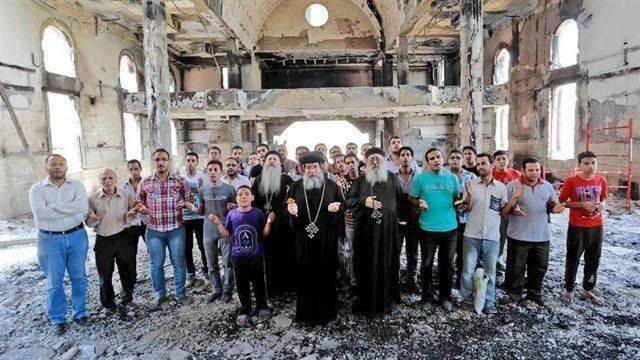
After the Islamist President Mohammed Morsi was removed from office by the Egyptian military on July 3rd, Egypt’s Coptic society has paid a high price. As pro-Morsi demonstrators were dispersed amid bloody scenes, Human Rights Watch registered at least 40 attacks on churches. According to Bishop Thomas, 53 churches were torched, looted, or destroyed since Morsi’s overthrow.
“Fear and anger does not come in my heart. Fear is the biggest enemy – this makes you lose wisdom and power,” said the Bishop gently when asked about the impact of the violence on life as a Copt. “Hatred is the biggest disease – full of revenge and the source of all evil.”
Nevertheless, the Bishop questions the attackers, “When you see them coming towards you with machine guns, see pictures of burned down churches with Al Qaida-flags on ruins and videos of Morsi-friendly doctors pull out the oxygen supply of patients at the hospital, then you have to ask why.
Lethal rumours
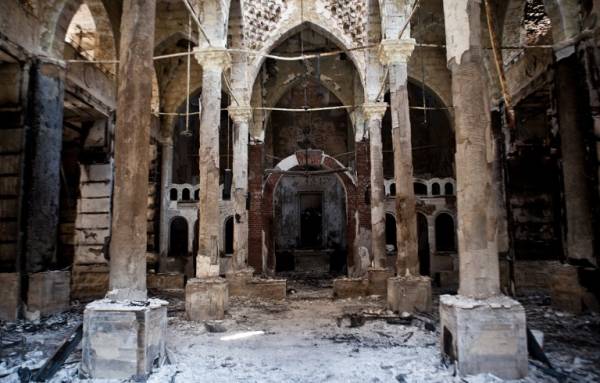
On the other side, the Muslim Brotherhood and other Islamists have denied any affiliation with the crimes and condemn the actions. Meanwhile, Brotherhood-friendly media has been claiming that a conspiracy between the Coptic community and the military ousted the country’s first legally elected president.
Bishop Thomas holds no doubts that these rumours have intensified the persecution on Egypt’s Coptic Christians who form 10 percent of the population. He rejects, however, the alleged alliance, as pure lie.
“In the name of democracy, it is obvious that we support a civil society and a secular state, but church people do not interfere in politics,” emphasized the Bishop.
Despite the attacks, Bishop Thomas believes that reconciliation and forgiveness are necessary.
“I need to embrace the victims with love and communicate forgiveness. When the worst assaults are over, my task is to promote and facilitate reconciliation,” said the Bishop calmly while smiling. “The Coptic church is training people to see the situation from different perspectives, we teach them the difference between autocracy and democracy, and the meaning of a civil state. We are working against both a religious – and a marshal state.”
Together against extremism

The first steps towards gradual reconciliation in Al Quosia have already commenced, according to the Bishop. The day the armed Islamists attacked houses and stores in Bishop Thomas’ village, the Coptic Church started to communicate with moderate Muslims.
“Poor Muslim families brought blankets to the Christians who lost their homes, and together we formed a civil front– not Christians against Muslims– but civil society against extremism,” explained the Bishop.
Among the issues discussed jointly were defense-tactics and how to prevent any new attacks.
Images and video-clips from Muslims and Christians, who hand in hand formed a protective ring circle around churches, were shared on social media across the globe.
“No one who has not experienced sectarian violence close up will be able to imagine what this solidarity means to us, as a society,” said Bishop Thomas gratefully. “We did actually lose hope under Morsi. Now we are hoping and praying that the price Copts are paying now will benefit generations of Egyptians in the future.”
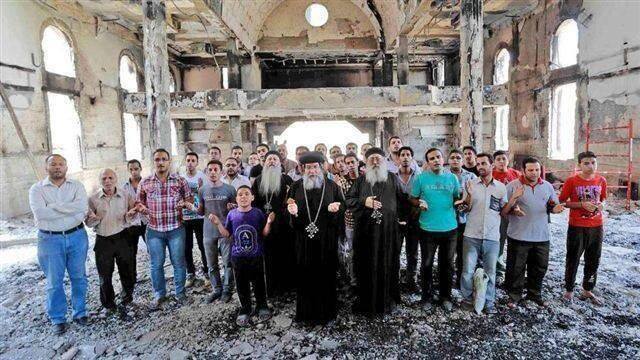




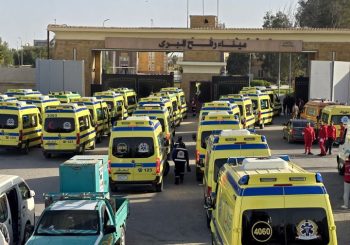
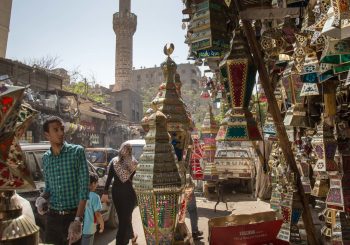
Comments (21)
Moved me to tears, and prayer,
Reblogged this on Oyia Brown.